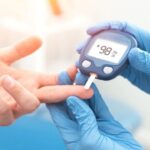Gastric polyps, a prevalent occurrence within digestive disorders, are the subject of today’s discussion as we delve into the questions surrounding their origin and prevention. This article aims to provide clarity on the queries surrounding “What causes gastric polyps, and how can they be prevented?”
1. Causes of Gastric Polyp Formation
1.1 What are Gastric Polyps?
Gastric polyps are clusters of cells formed on the inner surface of the stomach lining. Typically benign, these clusters pose no immediate threat to health. However, it is essential to acknowledge their potential to lead to dangerous complications, with some types carrying a risk of developing gastric cancer.

Gastric polyp
1.2 Unveiling the Causes of Gastric Polyps
The mechanism behind polyp formation involves the stomach lining responding to injuries. The following reasons explain the factors leading to gastric polyps:
– Chronic gastritis: Chronic gastritis) often triggers the development of polyps as it induces the overproduction of glandular tissue. While most of these growths are non-cancerous, vigilance is necessary, particularly with those exceeding 1cm.
– Genetic predisposition: Known as familial adenomatous polyposis, this rare genetic syndrome leads to the formation of polyps. Although these are often harmless, some may result in gland tumors.
– Medication misuse: Individuals frequently using proton pump inhibitors to reduce stomach acid secretion may develop glandular polyps. However, these polyps are generally small and pose minimal concern.
1.3 Groups Prone to Gastric Polyps
Gastric polyps can affect both genders across all age groups, with individuals over 45 being more susceptible. Factors such as prolonged use of proton pump inhibitors, Helicobacter pylori infection in the stomach, sedentary lifestyle, and smoking habits increase the risk of developing stomach polyps.
2. Types of Gastric Polyps
2.1 Fundic Gland Polyps
These polyps, commonly associated with long-term proton pump inhibitor use, are usually benign. In cases without any abnormal symptoms, physicians often opt for observation rather than immediate treatment.
2.2 Hyperplastic Polyps
These cell clusters, appearing in pedunculated or sessile forms, typically have a diameter smaller than 2cm. They are the second most common type of gastric polyp and may be associated with Helicobacter pylori infection.
2.3 Adenomatous Polyps
Found at the base of the stomach, these polyps serve as precursors to gastric cancer. Regular monitoring, biopsy, and potential removal are essential, especially for those exceeding 2cm.
3. Diagnosis and Treatment of Stomach Polyps
3.1 Diagnosis
Gastric polyps are often incidentally discovered during endoscopy for unrelated conditions. While most are benign, thorough examinations and biopsies are crucial to detect potential cancerous cells early.

Most stomach polyps can be removed during endoscopy
3.2 Treatment Approaches
Treatment varies based on the type, size, and cause of stomach polyps. Larger polyps with a potential for cancer development may require immediate removal through surgical procedures. Smaller polyps may be observed or treated with medication, especially if associated with Helicobacter pylori infection.
4. Prevention of Gastric Polyps
Despite their initial benign nature, stomach polyps can evolve into cancerous states over time. Therefore, early prevention is crucial, including:
– Regular health check-ups for early detection.
– Controlling factors contributing to gastric polyp development.
– Minimizing the use of proton pump inhibitors to prescribed dosages.
– Maintaining a balanced diet and lifestyle to avoid digestive complications.

A reasonable diet helps prevent stomach polyps
In conclusion, this comprehensive overview aims to address questions regarding the causes and prevention of gastric polyps. We hope this information proves beneficial in aiding readers in the early detection and effective treatment of this condition.
It is important to note that the information provided is for reference purposes and research and does not replace medical consultations, diagnoses, or treatments. Patients should follow the guidance of healthcare professionals to ensure their health and well-being.








